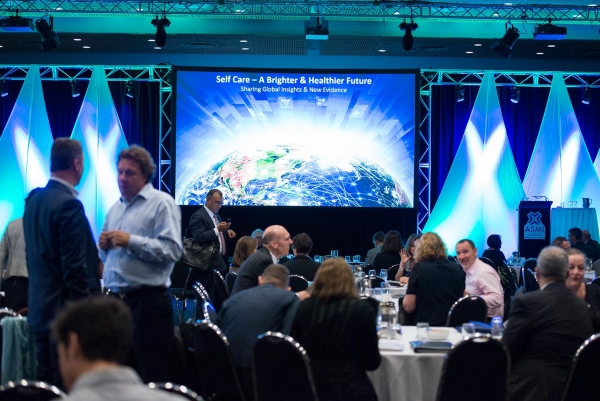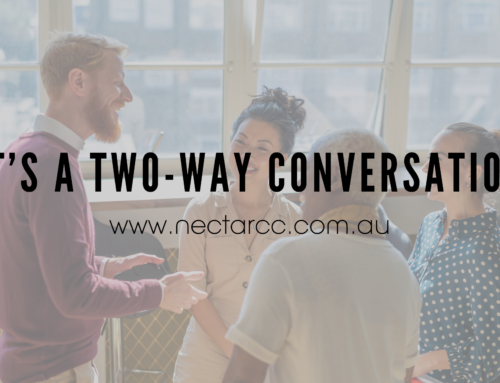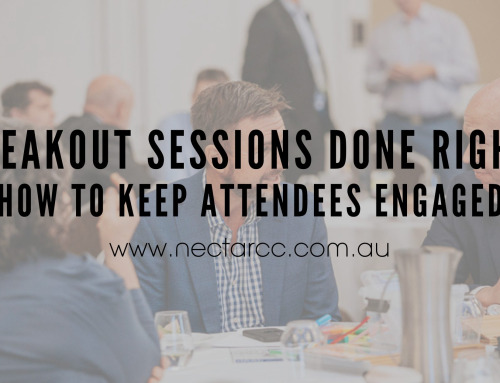
When you are in the planning stages of your event, it is important to think about and map out the delegate journey from start to finish.
So, that begs the question – when does the delegate journey begin? You may naturally have thought that it began the moment that they stepped into the venue, however the more we work in a world obsessed by CX (customer experience) the more we need to look at the bigger picture. I believe the delegate journey begins long before they even reach the event and it continues long after they have left. In order to create a positive delegate experience, you need to ensure that the event was worth the time it took them to get there and was also worth the registration fee they had to pay to attend. If by attending our event they had a behaviour-changing experience or left with an increase in knowledge, new connections and lasting memories then our job as event planners is done.

If you are unsure where to start with this process, I’ve got a few thought-starters for you:
- Everyone is different – your event isn’t and should never be a ‘one-size-fits-all’ event. Even though they will share a common interest as they are at the same event, your attendees will all have different behaviours, attitudes and motivations for being there. Begin to think about the types of people that you could have at your event and what expectations they will have. At every stage of the delegate journey, you want to create something unexpected that will have the delegate reacting in a positive manner.
While creating moments that are unexpected for the delegates, you also want to remember that some things may happen that are unexpected for you as the event planner. While your delegate journey may be a straight line, it is important to consider what might happen that could disrupt your linear structure. You obviously want to avoid this as much as you can but it is something that needs to be planned for and should be part of the planning process. - Plan before and after – As I mentioned previously, you need to bear in mind that your delegate’s journey begins long before they arrive at your venue and finishes long after they leave. The before and after stages of your event are vital. In detail, plan how they will hear about or be invited to your event, how they will register and what confirmation they will receive. Go through the process yourself. Are there any elements to it that you believe to be clunky or too much hard work or just not in keeping with the key messages and objectives of the event? Going through the process yourself will give you a better insight of what needs to change or could be improved.
When considering how your delegates will feel after leaving, you need to think about one main question – what will they leave with? If they leave feeling the same as when they arrived then something needs to change with the delegate journey. If I am at an event, I want to feel as if I have achieved something by going there whether that’s meeting someone I wanted to meet, hearing from an amazing speaker, seeing something for the first time or learning something new. Think about every possible outcome so that you can limit the risk of people leaving and feeling negatively or unchanged. Also, think about the legacy of your event, what will follow, will your delegates hear anything more from you? - Include empathy mapping – intertwined into your delegate journey should be a map of the feelings that your delegates should feel during the event. The different sessions and functions that you have running throughout the day will have different effects on your delegates. This is essential for program planning and knowing what you may need to change throughout the day to evoke the required emotion.
 Naturally, towards the end of your event, everything will begin to dissipate and wind down. However, you shouldn’t allow this to affect how your delegates feel. Saying goodbye to your delegates is equally as important as when you are welcoming them to the venue. Think about what your last activity or function of the day is and how it will have your delegates feeling. Think about putting friendly members of staff on the door to act as a final point of contact for your customers. This will be their last memory of the event so make sure that it is a strong one.
Naturally, towards the end of your event, everything will begin to dissipate and wind down. However, you shouldn’t allow this to affect how your delegates feel. Saying goodbye to your delegates is equally as important as when you are welcoming them to the venue. Think about what your last activity or function of the day is and how it will have your delegates feeling. Think about putting friendly members of staff on the door to act as a final point of contact for your customers. This will be their last memory of the event so make sure that it is a strong one.
With these things in mind, you can now begin to plan your delegate journey to ensure that it is a positive one from the beginning to the end.
Author: Peta Moore, Managing Director, Nectar Creative Communications






